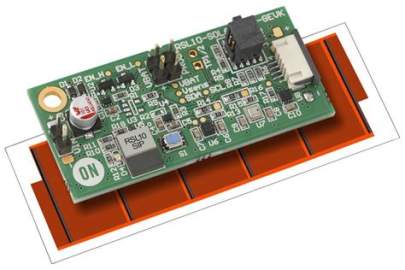The American Semiconductor Industry - Too little made at home
By Scott Tilley, ASCF Senior Fellow
August 15, 2022

Many people are familiar with this phrase imprinted on the backs of their cutting-edge consumer gadgets: “Designed by Apple in California Assembled in China.” Parsing this (grammatically incorrect) phrase is instructive because it speaks to the current state of the American semiconductor industry. It also underlies much of the rationale behind recent legislative developments in Congress.
Like many other technology companies, Apple came to the realization that its core competency was designing the products and services (hardware and software) that are the foundation of its business. Owning the design means owning the intellectual property, which in turn means owning lucrative copyrights, patents, and other forms of technical power. Hence the importance of the first part of the phrase, “Designed by Apple.”
There has long been a certain cachet associated with Silicon Valley, where Apple’s headquarters in Cupertino is located, hence the importance of the second part of the phrase, “in California.” In reality, Apple (like many industry leaders) has research and development facilities around the world, so much of the design is likely done outside of California. However, using any other location would not lend itself to immediate worldwide recognition.
The third part of the phrase, “Assembled in China,” is particularly interesting. The actual realization of the intellectual property captured in the design, such as the architecture for a microprocessor, can be outsourced to any manufacturer with the capabilities to build and assemble the final product. This has led to a concentration of silicon fabrication facilities (“fabs”) in East Asia. Companies like Taiwan Semiconductor Manufacturing Company (TSMC) specialize in manufacturing some of the most complex and leading-edge chips for use in multiple industries – including a significant portion of American infrastructure.
***
The value proposition of outsourcing the manufacturing of silicon chips to places like Taiwan usually centers on cost. Fab facilities cost billions of dollars to build. They require a trained workforce. They also employ hundreds of specialized robots to perform much of the assembly. But even accounting for geographical distances between America and Taiwan, and the complexity of supply chains crisscrossing the globe, the final bill for a chip made at TSMC is still lower than an on-shored facility – should such a facility even exist. And for the most part, they don’t.
We find ourselves in the odd position of creating the intellectual property for the world’s most advanced microprocessors but relying on non-American companies thousands of miles away to actually build the chips for us. Would we accept such a situation for the automotive industry, where so much political capital is spent propping up Detroit manufacturers? Would we accept such a situation for the aerospace industry, which is seen to be of strategic importance? Yet both of these industries, automotive and aerospace, would not be possible without the microprocessors made in Taiwan and elsewhere.
Congress recently passed a $280 billion bill to improve American semiconductor research, development, and manufacturing capabilities. One of the stated reasons for the bill is the investments made by China in semiconductors (both design and manufacturing). President Xi Jinping has made self-sufficiency in this area a crucial part of the “Made in China 2025” plan. It feels reminiscent of American worries in the 1980s concerning the Japanese Fifth Generation Computer project focused on artificial intelligence. (It didn’t turn out as expected.)
***
The recent saber-rattling by China concerning Taiwan is ostensibly driven by the recent visit by House Speaker Nancy Pelosi to the island. The Chinese government believes Taiwan is rightly part of China and has been making noises about reunification for decades. The events in Hong Kong demonstrate that China has the means and the will to accomplish what it has repeatedly and publicly stated are its intentions; we just don’t seem to listen.
There’s clearly a secondary reason for China’s interest in Taiwan: TSMC (and companies like it). China has yet to catch up with the US in chip design, and with Taiwan in chip manufacturing. One rapid path to parity is to take over the companies involved. It would certainly save on R&D expenditures but incur terrible non-monetary costs.
Interestingly, some recent Apple products no longer carry the phrase “Assembled in China.” Instead, some now say, “Made in Vietnam.” Precious few say, “Made in USA,” but the market may yet solve the problem for us. Reshoring manufacturing is increasingly attractive from a cost perspective due to supply chain disruptions and AI-driven robotic assembly lines. It is also attractive from a national security perspective. I think semiconductors should be treated like energy, health, and other parts of our modern economy: essential, strategic, and best made at home.
###












Wednesday, August 17, 2022